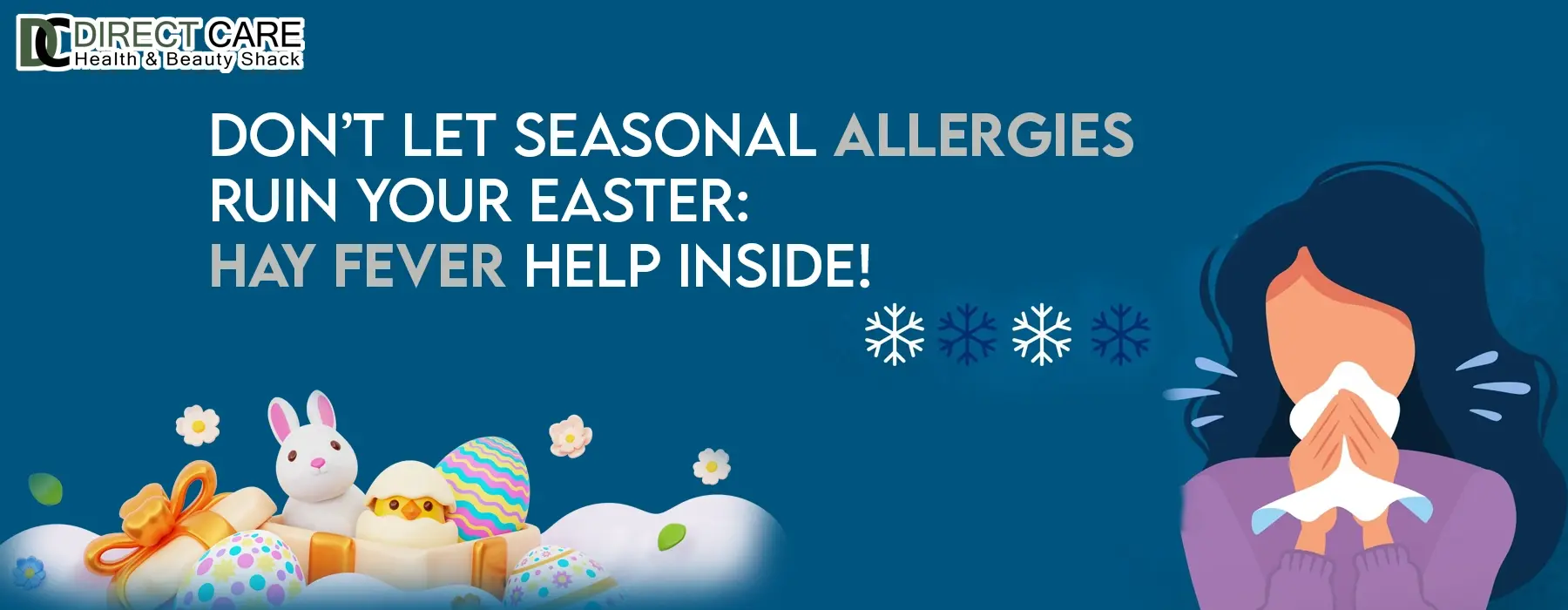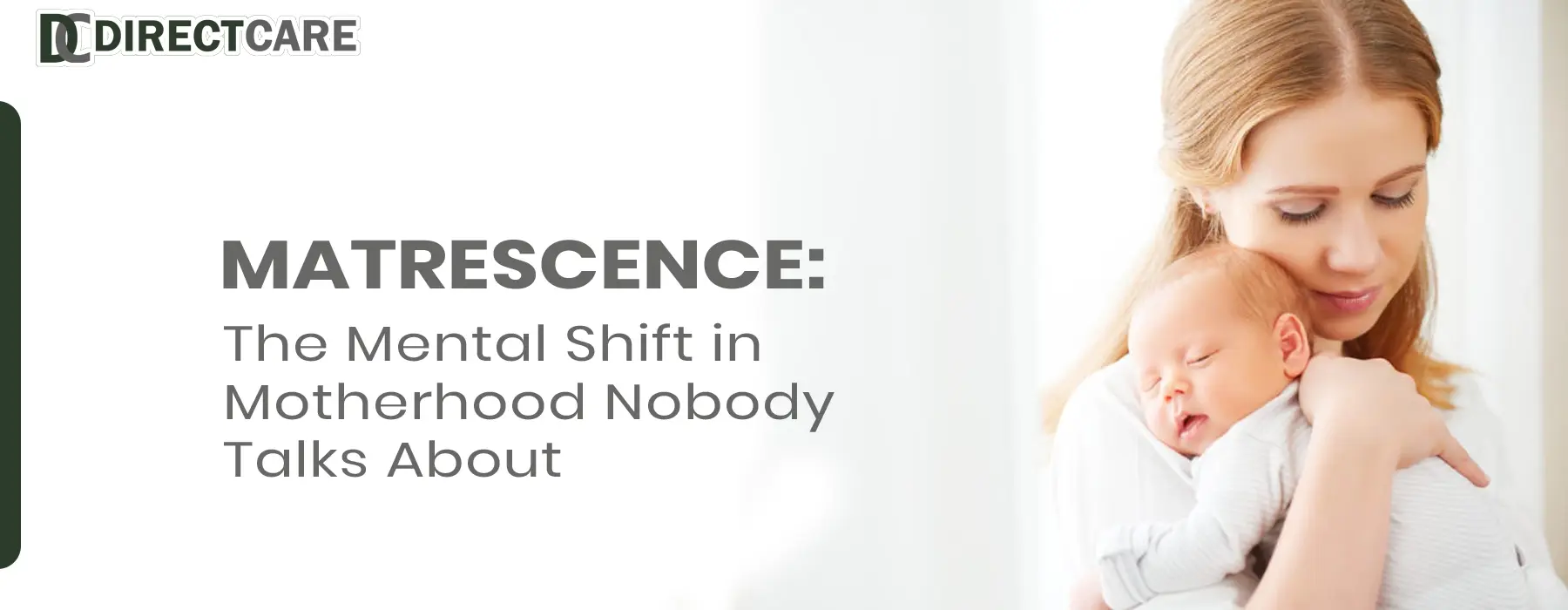Are Nutritional Shakes the Future of Supplementing? UK Market Trends to Watch
16 Jul 2025Direct Care | 09 Apr 2025
Don’t Let Seasonal Allergies Ruin Your Easter: Hay Fever Help Inside!

Ah, Easter in the UK – blooming flowers, longer days. Spring arrival brings not only blossoming flowers but, for many, endless seasonal allergies. If you’re sitting on your couch and wondering about your Easter weekend, that’s more with the tissues and itchy eyes, and less of Easter chocolates, then you’re not alone. Hay fever is officially in the season now, but don’t worry, we’ve got you covered. Whether it’s pollen-proofing your home or looking for fast relief on the go, here’s how to enjoy Easter without the sniffles.
What is Hay Fever?
Hay Fever, also known as allergic rhinitis, is a body allergic reaction to pollen. It is caused by allergens in the air such as mould, grass, tree and plant proteins. It is one of the most common allergies in the UK. Hay fever usually gets worse between late March and September.
Common Causes & Symptoms
If you feel any of these symptoms, then you may be experiencing hay fever symptoms:
- Itchy, red or watery eyes
- Itchy throat, nose and skin
- Sneezing and a blocked nose
- Runny nose
- Rashes
- Coughing
- Loss of smell
- Headache and pain around the temples
- Sinus Pain or Sinusitis
- Fatigue
- Swollen under the eyes
Surviving Hay Fever this Easter:
-Understanding Easter Allergy Triggers:
Spring Pollen:
-Easter typically falls in Spring, and that’s the peak season of tree and early grass pollen.
Outdoor Activities:
Easter activities like egg hunts, picnics and garden activities can increase the exchange of pollen.
Food Allergies
Easter meals and treats may contain common allergens such as dairy, eggs and nuts.
Easter Activity Adjustments:
-If thinking of participating in Easter activities, consider taking part in late afternoons or when the pollen count is lower.
-If possible, plan for Easter egg hunts indoors.
-When planning for an art and craft activity, be aware of and take care of potential allergies in the craft supplies.
How to minimise Hay Fever symptoms:
There are simple methods to minimise the symptoms of hay fever.
-Apply an adequate amount of petroleum jelly around your nostrils.
-Reduce spending time outside when the pollen count is high.
-Shower and change your clothes after coming from outside.
-Shut down the house windows and doors (especially at night).
-Avoid keeping fresh flowers in the house.
-Avoid walking in grassy parks or gardens in the morning or afternoon.
Treatments for Hay Fever
The most effective step you can take is to avoid coming in contact with pollen that triggers hay fever symptoms; this indicates staying indoors and keeping doors and windows closed. But this isn’t the only practical solution, especially in the summer.
Management Tips for Hay Fever
Here are some of the effective tips on how to get rid of hay fever symptoms:
-Monitor pollen count and stay indoors when the pollen count is high.
-Consider taking an antihistamine supplement like Clarityn Allergy Tablets, cetirizine, to prevent or reduce symptoms.
-Nasal Sprays: Use nasal sprays as prescribed to reduce nasal inflammation.
-Eye drops: Use antihistamine eye drops to relieve itchy and watery eyes.
Key Considerations to make:
-Start taking allergy supplements before, reduce and easily manage the symptoms of hay fever.
-Consult with your doctor or pharmacist for personalised advice.
-If you have severe seasonal allergies, please carry your prescription.
By taking care of these considerations, you can enjoy Easter activities while minimizing hay fever symptoms.
Conclusion
Easter spring activities often coincide with peak allergen seasons, posing challenges for those dealing with seasonal allergies. By taking care of preventive measures and management tips, individuals can effectively mitigate seasonal allergies symptoms while also enjoying Easter at the same time. Proactive care and prescribed supervision remain essential to sustaining well-being.
Read More Article: Antiperspirant vs Deodorant: Reasons To Switch?
Tags
Frequently Asked Questions
Spring tree and grass pollen are major causes. Increased outdoor activities like egg hunts also expose you. Monitor local pollen counts to pinpoint specific triggers.
Use over-the-counter or prescription antihistamines and nasal corticosteroid sprays. Limit outdoor exposure during peak pollen times, and regularly rinse your nasal passages with saline solution.
Pollen counts are often highest in the mornings and on windy days. Check local forecasts and plan outdoor activities for late afternoons or evenings. Keep windows closed and shower after being outside.





